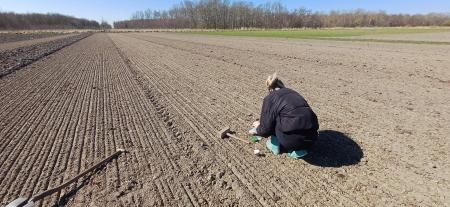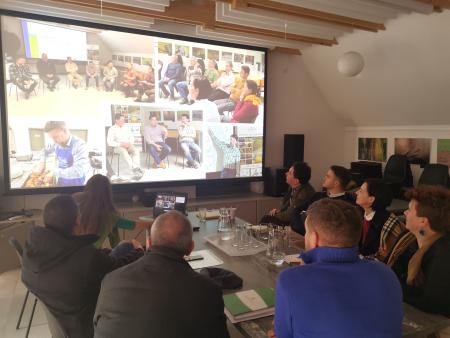What is trans4num?
trans4num is a four-year EU-funded project under the Zero Pollution call, implemented as an EU–China cooperation initiative on nature-based solutions (NBS) for sustainable nutrient management in agriculture. Coordinated by the University of Hohenheim, the project brings together partners from 14 European countries, alongside leading Chinese research institutions.
The project takes a multi-actor, multi-level approach, working closely with academic experts, farmers, advisors, policymakers, and other stakeholders to assess how innovative NBS can reduce nutrient losses while improving soil health, resilience, and farm performance.
trans4num examines NBS practices across seven demonstration sites( four in Europe and three in China) representing diverse farming systems, soils, climates, and policy contexts. These sites share key characteristics:
- intensive agricultural systems facing high nutrient-loss risks,
- a wide range of promising NBS options, particularly crop rotations and bio-based fertilisers,
- established demonstration or experimental farms closely linked to local farmers, and
- strong potential to combine NBS into context-appropriate nutrient strategies.
Across these sites, the project will select, test, and evaluate NBS innovations using a systems approach, assessing effects at field, farm, landscape, and regional levels.
The project is running from December 2022 – November 2026.

Project Objectives
trans4num’s ambition is to accelerate the adoption of NBS across Europe through a robust, tested, and user-driven framework. The project aims to:
- identify and assess socially and contextually appropriate transformation pathways toward sustainable nutrient management;
- develop a user-oriented decision support tool to guide regional nutrient planning and collaborative landscape-level decision-making;
- generate and communicate practice-ready assessments on the potential of selected NBS across different farming systems and climatic zones;
- establish and test integrated modelling approaches that link farm, value chain, and food system dynamics, producing multi-level evidence on NBS performance and uptake;
- promote and disseminate NBS innovations to support their wider adoption
Methods
The trans4num project is systematically transforming nutrient management and sustainable agriculture practices across Europe and China. Our holistic approach involves five integrated stages:
- Systemic analysis: Reviewing existing solutions and identifying key pathways for nutrient management.
- NBS Characterisation: Rigorous testing and assessment of Nature-Based Solutions at multiple project sites.
- Optimising nutrient flow: Leveraging satellite data and innovative decision-support tools to manage nutrients efficiently.
- Scenario development: Using advanced bio-economic simulations to anticipate outcomes and ensure sustainable food systems.
- Transformative learning: Collaborating closely with stakeholders through workshops and hackathons, fostering impactful innovations and transdisciplinary learning.
Partners
- EU Partners
- University of Hohenheim, Germany
- Aarhus University, Denmark
- Cordulus, Denmark
- Klimafonden Skive, Denmark
- Innovation Center for Organic Farming, Denmark
- Wageningen University, The Netherlands
- SPNA, The Netherlands
- Szechenyi Egyetem University, Hungary
- Pannon-Mag-Agrar Kft, Hungary
- Pisztrang Kor Egyesulet, Hungary
- Rothamsted Research, The United Kingdom
- FiBL, Switzerland
- Plan4All, Czech Republic
- Highclere Consulting, Romania
- Chinese Partners
- Agricultural Information Institute Of Chinese Academy Of Agricultural Sciences
- Institute Of Crop Science, Chinese Academy Of Agricultural Science
- Southwest University
- Henan Academy Of Agricultural Sciences
- Tsinghua University
- Center For Agri-Food Quality And Safety, Ministry Of Agriculture And Rural Affairs
- Research Center For Rural Economy, Ministry Of Agriculture And Rural Affairs
- China Agricultural University

Funding
Funded by European Union through the Horizon Europe programme, under grant no. 101081847.